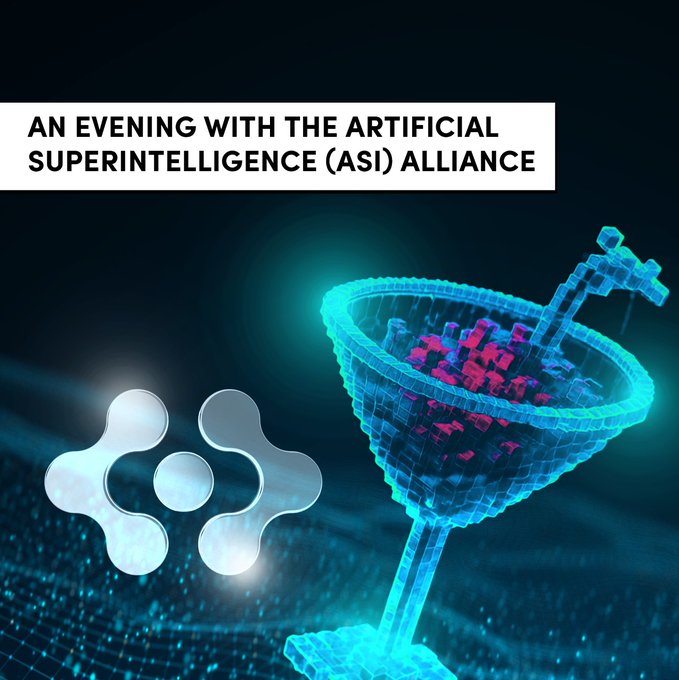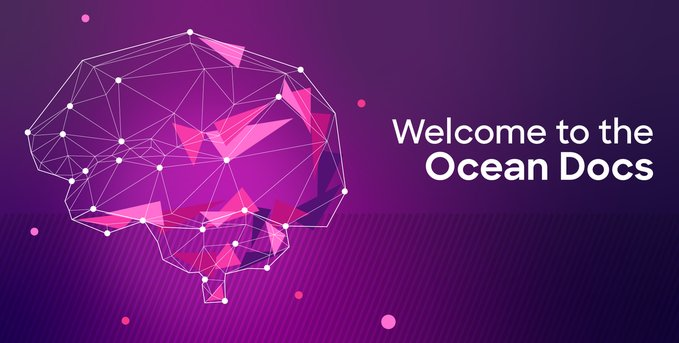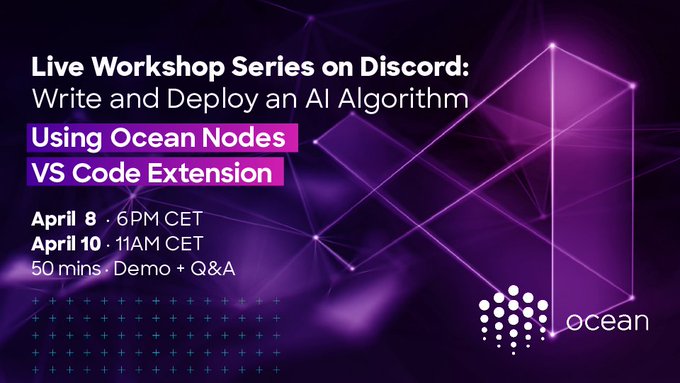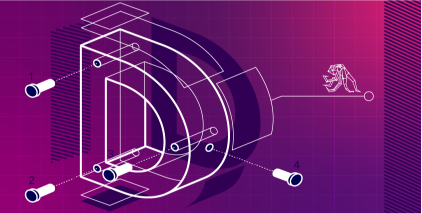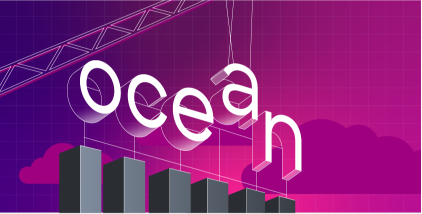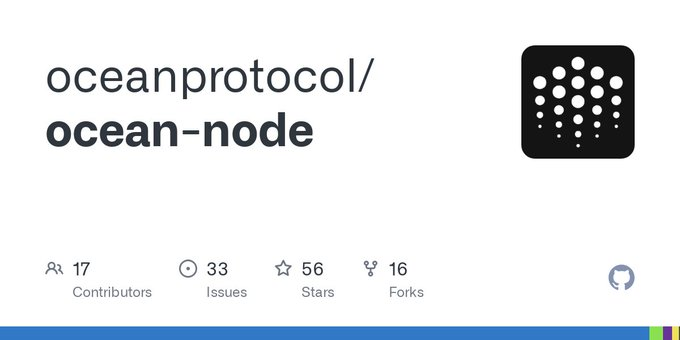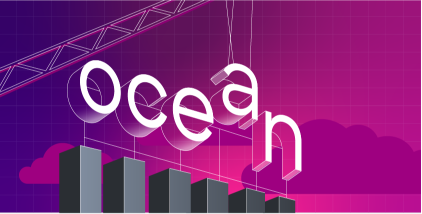Ocean Protocol's Compute-to-Data: Privacy-First AI Infrastructure
Ocean Protocol's Compute-to-Data: Privacy-First AI Infrastructure
🤖 Your AI Never Sees Raw Data

Ocean Protocol introduces a paradigm shift in AI data handling by sending algorithms to data instead of moving sensitive data around. The system uses Compute-to-Data (C2D) technology to maintain privacy while enabling AI training on regulated datasets.
Key features:
- Algorithms travel to where data resides
- Smart contracts handle job orchestration
- On-chain access controls enforce permissions
- Immutable audit trail tracks all operations
This architecture enables:
- Privacy-preserving AI training
- Regulatory compliance
- Secure data monetization
- Decentralized compute infrastructure
Ever wish you could run your models on sensitive data without ever touching the raw files? With Ocean Compute-to-Data, that’s exactly what you get Smart contracts handle job orchestration with no middlemen, no guesswork. Access controls live on-chain, enforcing data permissions
The foundation is set. True AI sovereignty begins with data you actually control Ocean Protocol gives you a trustless data layer where you define: 1. Who can access it 2. Under what conditions 3. How often 4. Whether it’s monetised or open for public good Build it your way:
The AI world has been obsessed with models, but real progress is in shifting focus from tweaking algorithms to improving datasets Yet, curating high-value data at scale raises issues of access, provenance, and ownership Ocean’s tech stack provides the substrate for this by
From AGI to ASI, powered by community, computation, and collaboration Join @oceanprotocol’s @trentmc0 and the @ASI_Alliance for “DeAGI & Cocktails” on May 15 in Toronto Let’s build the next wave of AI together Register here: lu.ma/hlzznmy7
DeAGI & Cocktails: A Glimpse into the Rapidly Emerging Future As the ASI Alliance, we're excited to share our vision for revolutionizing AI through decentralization. We'll showcase our groundbreaking work on MeTTaCycle—the technical backbone of our new ASI Chain. ASI Alliance
Did you know? The Ocean VS Code Extension lets you test and run compute jobs directly from your editor, no external tools required Simulate Ocean network jobs locally in a built-in sandbox, speeding up AI workflows with zero blockchain overhead docs.oceanprotocol.com/developers/vsc…
What if your AI model didn’t just deliver answers, but also rewarded you for your contributions? Ocean Protocol makes this possible by: • Turning data into Data NFTs • Tracking usage transparently on-chain • Enabling real-time, automated royalties • Preserving privacy with
Global GPUs/CPUs are now just a node away Ocean Nodes give AI researchers on-demand access to scalable compute via a decentralised network no cloud lock-in, no inflated fees Run large training jobs securely using Compute-to-Data, where your code goes to the data (not the other
1 hour to go until our hands-on AI workshop kicks off Learn how to deploy algorithms using the Ocean VS Code Extension and Nodes guided live by Ocean core engineers Join our discord to participate: discord.gg/ygEuCtPxw6
The core of decentralised AI now runs where you code, your IDE The Ocean VS Code Extension lets you deploy safe Compute-to-Data jobs and run federated learning workflows, all from your IDE With a built-in real-time monitoring environment, it’s an efficient way to build
AI engineers, we get it, accessing high-quality data while staying compliant can be a real challenge That’s why we built the Ocean VS Code extension It lets you publish datasets, manage datatokens, and run compute-to-data jobs all from the comfort of your editor No need to
Gm As AI models grow exponentially, traditional computing machines can no longer keep up Ocean Nodes enable distributed computing, harnessing a global network of distributed, high-quality compute to meet the demands of modern AI training Explore more: docs.oceanprotocol.com/developers/oce…
Every smart AI system runs on strong algorithms Learn to build and deploy them live using Ocean Nodes + VS Code at our hands-on AI workshop in Toronto, May 16 at 1 PM 📍 Sheraton Centre Toronto Register here: lu.ma/d7jwm2r5
As agentic AI evolves, it needs secure, privacy-preserving infrastructure Ocean’s tech stack delivers exactly that, letting agents compute on private data without exposing it With Ocean Nodes + C2D: - Access decentralized compute - Run models securely - Keep data private Learn
Using AI is cool. Building it? Even better Join us on May 16 at 1 PM in Toronto for a hands-on workshop with Ocean’s VS Code extension + Nodes. Learn to build privacy-first AI workflows from algorithms to real-world deployment 📍 Sheraton Centre lu.ma/d7jwm2r5
DePIN is booming. But how do these networks monetise and compute on real-world data? Ocean Nodes bring the missing piece, a decentralised, privacy-first compute layer for AI and analytics Here’s how it works: 1. Raw data stays local (e.g., EV logs, smart meters) 2. Compute
What if your code editor could talk to the blockchain and help publish AI models like GitHub publishes code? Ocean VS Code extension becomes your IDE plugin for safe compute, which integrates Ocean tech capabilities directly into the VS @code environment From dataset
What if your dApp could: - Run machine learning models without exposing data - Seamlessly offload compute to a decentralised network - Reward both developers and node operators in one integrated flow? Start here: docs.oceanprotocol.com/developers/oce…
Developers, the week you’ve been waiting for is here In just 3 days on May 16, join us in Toronto to go from code to compute and build decentralised AI using Ocean Nodes + VS Code Part 1 (1:15–2:10 PM): Intro to deploying AI algorithms using Ocean’s tech stack Part 2
The Ocean CLI tool is your gateway to privacy-preserving AI development With a single command, such as "npm run cli publish path/to/metadata.json", you can easily tokenise your data into on-chain Data NFTs Once tokenised, you can leverage Ocean Compute-to-Data to: 1. Perform
The Ocean VS Code extension brings decentralised AI workflows right into your IDE: -Run privacy-preserving compute jobs (C2D) -Tokenize & monetize datasets -Monitor jobs in real-time -Access AI-ready data, no backend needed Your AI command centre, built for Web3 Explore it:
How Ocean Tech can act as the Data Layer for Open-Source LLMs LLMs need vast, diverse, high-quality datasets for: 1. Pretraining - large-scale text corpora 2. Finetuning - task or domain-specific data 3. Evaluation & Alignment - human feedback, bias mitigation, safety tuning
Inference allows a trained AI model to apply its knowledge to new, unseen data, transforming raw inputs into meaningful predictions or decisions However, centralised inference is challenging due to strict privacy regulations, concerns about exposing data, and the high costs &
How do you go from “What are AI agents?” to “I’m building one” in under 10 minutes? The next internet won’t be made of websites and apps. It’ll be autonomous agents software that runs on your data, makes decisions, and learns over time Some agents follow simple rules. Others
Ocean Nodes aren’t a product, they’re a capability They let any system become a sovereign data agent, able to: 1. Monetise data without exposing it 2. Run AI safely on private datasets 3. Join a decentralised compute economy They’re also system-agnostic, meaning they work
Curious about how decentralized tech is shaping AI? 🤖 Join Ocean Protocol hands-on AI workshop in Toronto on May 16 to explore Ocean Nodes + VS Code in action Learn how to build algorithms Sign up now: lu.ma/d7jwm2r5
From Python scripts to DNA, data is everywhere Ocean C2D lets you train AI models on private data securely and without exposure In the age of intelligence, control over data and compute is real power Full conversation here: x.com/autonolas/stat…
What makes an AI agent truly autonomous? On Episode 10 of the Agents Unleashed podcast, @ThomasMaybrier speaks with @TrentMc0 co-founder of @oceanprotocol and the Artificial Superintelligence Alliance to explore what sovereignty means for AI, and why blockchain is essential for
You’re not just running code You’re running decentralised AI compute on live data, without ever touching cloud servers Ocean Nodes handle the heavy lifting, privately and on your terms In this clip, our engineer Maria walks you through how it actually works More on
In today’s AI economy, data operates in opaque, black-box systems. Be honest, when was the last time you benefited from your data? Ocean provides the missing infrastructure layer, bringing ownership, incentives, and decentralisation to the AI data supply chain On top of that,
The next internet won’t be apps or websites, it’ll be AI agents running on your data But today’s AI systems are extractive. They take your data, keep the value, and give little back Ocean flips that model With Ocean CLI and Ocean Nodes, you own your data and compute. You build
LLMs rely on massive, high-quality datasets for training and fine-tuning. But critical questions arise: 1. Where does this data come from? 2. Is it legally sourced? 3. Are the original contributors fairly compensated? Ocean Protocol addresses these challenges head-on by
The future of computing is changing With Ocean Nodes, high-performance tasks like deep learning, scientific simulations, and financial modelling won’t just run, they’ll run smarter, with private, decentralised compute Learn more: docs.oceanprotocol.com/developers/oce…
Getting access to data shouldn't take days You shouldn't have to compromise privacy to train your models Ocean Protocol fixes that Train on remote data, stay compliant, and skip the bottlenecks Powered by Ocean py, Ocean CLI, and Compute-to-Data Start here:
Make your Data an asset class with Ocean CLI It's a powerful, scriptable tool that lets you interact with Ocean core features. Here’s what you can do with it: 1. Publish data services - Create a Data NFT, datatoken, metadata DDO, and set a price in one go (whether it’s a
AI folks, we’ve all hit this wall The traditional “download data → train model” workflow is outdated and risky Ocean C2D has a solution! Instead of moving the data to your model, Ocean C2D lets you send your ML/AI algorithm to the data in a secure, sandboxed environment,
AI development is evolving, and you can be part of it Ocean Protocol is hosting a live AI workshop in Toronto on May 16 Learn how decentralized compute powers real-world AI with Ocean Nodes and VS Code Register today: lu.ma/d7jwm2r5
AI devs, here’s what’s coming up at our hands-on Algorithm Writing Workshop in Toronto on May 16 Location: Sheraton Centre Toronto Time: 1:00 PM – 4:30 PM EST Register: lu.ma/d7jwm2r5 Part 1 – 1:15 PM to 2:10 PM We’ll kick off with an intro to Ocean Nodes from
Why send data to the cloud when the cloud can come to your AI? DePAI unlocks real-world data from decentralized sensors, robots, and physical AI Ocean Compute brings the missing piece: private, secure, and on-site compute With Ocean Compute-to-Data, DePAI nodes can: 1. Run AI
We all know it, LLMs and GenAI demand massive compute and data Centralised computing can’t keep up. It faces limitations like scalability bottlenecks, privacy risks, and a single point of failure Ocean Nodes lets you tap into a global network of idle GPUs/TPUs to train and
It’s Web3 meets DataOps, built for the age of AI superintelligence Ocean Data NFTs let data creators own, control, and monetise their data, without giving it away They also power privacy-preserving AI pipelines with token-gated access and crypto incentives Learn more:
You wrote the gene. You trained the model So why does someone else own the data? Ocean Data NFTs let you mint your sequences, models, and datasets as verifiable on-chain assets, timestamped, auditable, and tied to your wallet With datatokens, you can license a gene for
CPUs and GPUs have powered decades of computing from desktop applications to large-scale enterprise systems CPUs are optimised for sequential tasks, ideal for logic-heavy operations and operating systems. GPUs, with thousands of smaller cores, are better at handling parallel
AI needs more than data, it needs trust in the data With Ocean’s on-chain tracking and Compute-to-Data, AI models can train on private datasets without ever moving them Here’s how it works: 1. Publish with Data NFTs – Data owners mint a Data NFT in Ocean, registering the
AI is leaving the screen and entering the world through Physical AI, robots, drones, and wearables These systems perceive, decide, and act in physical space, demanding real-time, low-latency data and precise contextual awareness Centralised cloud architectures introduce
GM everyone The next wave of AI innovation won’t come from Big Tech alone. It will be driven by open-source builders like you Ocean is laying the foundation. Are you ready to build on it? oceanprotocol.com/build/develope…
Ocean Nodes aren’t just about privacy, they can help you build full-stack, decentralised machine learning pipelines With Ocean Nodes, you can: 1. Share your training data across multiple nodes 2. Distribute those shards intelligently to compute providers 3. Orchestrate training
From code to compute in under an hour Join our AI workshop on April 8 at 6PM CET to build and run secure algorithms inside VS Code using Ocean Nodes Join Discord: discord.gg/a7yHERJa Register here: lu.ma/upuylnjx
Developers, we’re coming to Toronto 🇨🇦 On May 16 at 1PM, join us for a hands-on AI workshop where you'll deploy algorithms using Ocean Nodes and the VS Code extension Learn to build privacy-first AI. No prior experience needed 📍Sheraton Centre Toronto lu.ma/d7jwm2r5
There’s an old principle from the Himalayas: “To win in the long run, you need leverage and efficiency.” That applies to AI too With the Ocean VS Code extension, you can build secure AI agents quickly by combining your logic with Ocean Nodes and Compute-to-Data Here are just
AI models shouldn’t grow at the cost of data privacy With Ocean’s Compute-to-Data, algorithms can train on quality datasets without exposing them, enabling secure, scalable AI That’s how AI should evolve Learn more: docs.oceanprotocol.com/developers/com…
This is a quiet but essential layer in the AI economy The real challenge isn’t just training bigger models, it’s accessing siloed, high-value data while preserving privacy Ocean’s Data NFTs bring ownership, metadata, and access control on-chain, enabling secure, auditable,
When we talk about the Ocean tech stack, we mean a full suite designed for AI developers Build, train, and scale with: 1. Data NFTs – Tokenize & share datasets 2. C2D – Run privacy-preserving compute 3. Ocean Nodes – Fast, distributed AI infrastructure Explore:
What if, with just a few lines of code, you could start monetising the most valuable resource of our time, data? Ocean CLI makes it simple Tokenise your data. Share it securely Turn it into a usable asset for AI and more Start here: docs.oceanprotocol.com/developers/oce…
Instead of moving sensitive data, Ocean sends your algorithm to where the data lives The result? Privacy stays intact, perfect for regulated or high-risk datasets In this clip, @FazakasBogdan from our engineering team explains why this matters for the future of AI More on
With the EU AI Act and the U.S. Executive Order pushing for safe, secure, and trustworthy AI, protecting sensitive data is no longer optional; it’s a regulatory imperative Ocean Compute-to-Data ensures compliance by design: 1. Algorithms travel to the data 2. Execution occurs
Modern AI is starving for compute Training and inference need massive GPU power, but most of it is locked behind hyperscalers like AWS or Google Cloud This creates serious problems: 1. Startups & researchers get priced out 2. Surveillance & compliance risks rise 3. Local
The next evolution of AI infrastructure isn’t bigger GPUs. It’s sovereign compute coordination Ocean C2D does exactly that, allowing algorithms to run where data resides, using private compute environments & on-chain rules to control access Learn more: docs.oceanprotocol.com/developers/com…
Want to build AI apps that actually respect data privacy? Ocean.js is the toolkit that brings Ocean decentralized data and compute innovation right into your frontend. With just JavaScript, you can: 1) Publish datasets as on-chain assets 2) Token-gate access using datatokens
Are you building AI agents in VS @code and want secure, low-cost compute for your data? Try the Ocean Protocol VS Code Extension, it brings Compute-to-Data (C2D) into your IDE so you can run decentralised AI jobs without exposing sensitive data Perfect for privacy-first
Verifiable Data Provenance with Ocean Protocol In an era of increasing AI regulation (e.g. the EU AI Act), data provenance is no longer optional, it’s essential. Teams must not only know what data powers their models but also prove it Ocean Protocol makes this possible with a
The future of AI development is decentralised Don’t miss your chance to build it Ocean Protocol is hosting a free hands-on workshop in Toronto on May 16 Learn to run compute jobs in real time using Ocean Nodes + our VS Code extension Register now: lu.ma/d7jwm2r5
What if you could license your dataset in minutes, not months? With Ocean CLI: 1. Upload your dataset 2. Tokenise it with a Data NFT 3. Sell access with Datatokens Smart contracts do the lawyering. You focus on research docs.oceanprotocol.com/developers/con…
Let’s rewind AI started on mainframes. Then came the cloud. But computing remained centralised, expensive, gated, and limited Ocean Nodes unlock a new era: decentralised AI computing from idle machines around the world The architecture is shifting docs.oceanprotocol.com
Ocean Protocol Launches SignalBoost Data Quest with $5K Prize Pool
Ocean Protocol has announced SignalBoostCurate, a new data quest running from August 11 to September 30, 2025. Participants can earn rewards from a $5,000 prize pool by curating market-moving cryptocurrency news. This initiative follows Ocean's successful quest series, including their recent collaboration with Myriad Markets that offered 15,000 points for analyzing WalletConnect's State of Onchain UX report. - Quest Period: Aug 11 - Sep 30, 2025 - Prize Pool: $5,000 - Focus: Market-moving crypto news curation
Ocean Protocol Launches Data NFTs for Scientific IP Management
Ocean Protocol introduces Data NFTs, enabling researchers to tokenize and manage scientific intellectual property on-chain. Key features: - Mint sequences, models & datasets as verifiable assets - License genes for research with datatokens - Offer API access to models - Split royalties via smart contracts - Track versions & access logs The system provides automated IP management through smart contracts, replacing traditional legal processes. All assets are timestamped, auditable, and wallet-linked for seamless compliance and publication tracking. Learn more at [Ocean Protocol Docs](https://docs.oceanprotocol.com/developers/contracts/data-nfts)
Ocean Protocol Enables Verifiable Data Provenance for AI Compliance
As AI regulation tightens globally, Ocean Protocol introduces essential tools for data provenance and compliance: - **Data NFTs** for unique dataset identification and tokenization - **Datatokens** for controlled on-chain access - **Immutable logging** of all compute jobs and data interactions - **Version tracking** for both datasets and models The system creates transparent, auditable AI pipelines that help teams meet regulatory requirements like the EU AI Act. Ocean's stack transforms black-box AI into traceable, compliant systems. Learn more at [Ocean Protocol Developer Docs](https://docs.oceanprotocol.com/developers)
The Evolution of Computing: From CPUs to Distributed Systems
Traditional computing infrastructure faces new challenges in the AI era. While CPUs excel at sequential tasks and GPUs handle parallel operations, modern AI workloads demand capabilities beyond their limits. - CPUs: Optimized for logic and operating systems - GPUs: Better for rendering and ML inference - Limitations: Cost, energy demands, hardware constraints Distributed computing offers a solution by leveraging underutilized resources from gaming GPUs to enterprise systems. This approach provides: - Improved scalability - Cost effectiveness - Energy efficiency - Decentralized architecture



